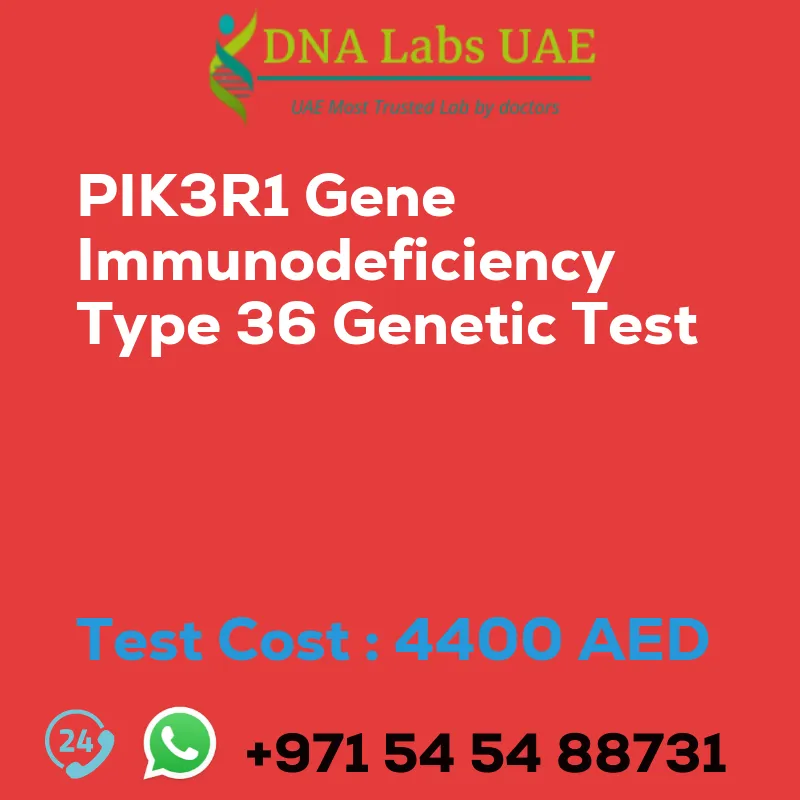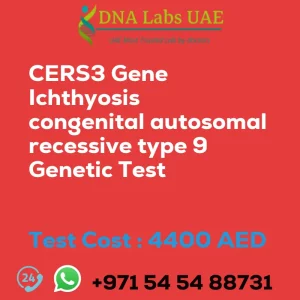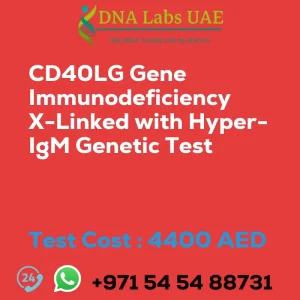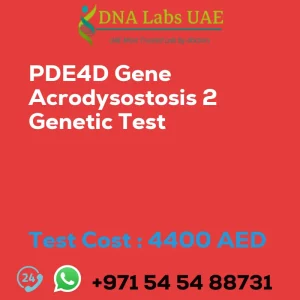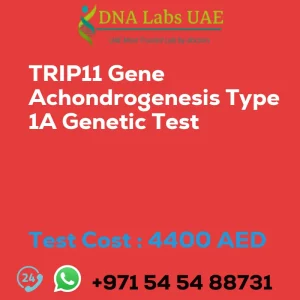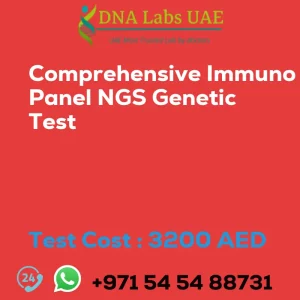PIK3R1 Gene Immunodeficiency type 36 Genetic Test
Cost: 4400.0 AED
Test Components
- Sample Condition: Blood or Extracted DNA or One drop Blood on FTA Card
- Report Delivery: 3 to 4 Weeks
- Method: NGS Technology
- Test type: Osteology Dermatology Immunology Disorders
- Doctor: Dermatologist
- Test Department: Genetics
Pre Test Information
Clinical History of Patient who is going for PIK3R1 Gene Immunodeficiency type 36 NGS Genetic DNA Test. A Genetic Counselling session to draw a pedigree chart of family members affected with PIK3R1 Gene Immunodeficiency type 36 NGS Genetic DNA Test gene PIK3R1.
Test Details
Immunodeficiency type 36 is a rare genetic disorder caused by mutations in the PIK3R1 gene. The PIK3R1 gene provides instructions for making a protein called p85, which is a regulatory subunit of an enzyme called phosphatidylinositol 3-kinase (PI3K). PI3K is involved in various cellular processes, including cell growth, division, and survival. Mutations in the PIK3R1 gene can disrupt the normal function of the p85 protein and impair the signaling pathway regulated by PI3K. This can lead to dysregulation of the immune system and an increased susceptibility to infections.
NGS (Next-Generation Sequencing) genetic testing is a method used to analyze the DNA sequence of the PIK3R1 gene. It allows for the detection of specific mutations or variations in the gene that may be associated with immunodeficiency type 36. NGS technology enables the analysis of multiple genes simultaneously, providing a comprehensive assessment of genetic variations.
The NGS genetic test for PIK3R1 gene immunodeficiency type 36 involves obtaining a DNA sample, typically through a blood sample or saliva sample. The DNA is then sequenced using NGS technology to identify any mutations or variations in the PIK3R1 gene. The results of the test can help diagnose individuals with immunodeficiency type 36 and guide treatment decisions.
It is important to consult with a healthcare professional or a genetic counselor to discuss the benefits, limitations, and implications of genetic testing before undergoing any genetic testing procedure.
| Test Name | PIK3R1 Gene Immunodeficiency type 36 Genetic Test |
|---|---|
| Components | |
| Price | 4400.0 AED |
| Sample Condition | Blood or Extracted DNA or One drop Blood on FTA Card |
| Report Delivery | 3 to 4 Weeks |
| Method | NGS Technology |
| Test type | Osteology Dermatology Immunology Disorders |
| Doctor | Dermatologist |
| Test Department: | Genetics |
| Pre Test Information | Clinical History of Patient who is going for PIK3R1 Gene Immunodeficiency type 36 NGS Genetic DNA Test. A Genetic Counselling session to draw a pedigree chart of family members affected with PIK3R1 Gene Immunodeficiency type 36 NGS Genetic DNA Test gene PIK3R1 |
| Test Details |
Immunodeficiency type 36 is a rare genetic disorder caused by mutations in the PIK3R1 gene. The PIK3R1 gene provides instructions for making a protein called p85, which is a regulatory subunit of an enzyme called phosphatidylinositol 3-kinase (PI3K). PI3K is involved in various cellular processes, including cell growth, division, and survival. Mutations in the PIK3R1 gene can disrupt the normal function of the p85 protein and impair the signaling pathway regulated by PI3K. This can lead to dysregulation of the immune system and an increased susceptibility to infections. NGS (Next-Generation Sequencing) genetic testing is a method used to analyze the DNA sequence of the PIK3R1 gene. It allows for the detection of specific mutations or variations in the gene that may be associated with immunodeficiency type 36. NGS technology enables the analysis of multiple genes simultaneously, providing a comprehensive assessment of genetic variations. The NGS genetic test for PIK3R1 gene immunodeficiency type 36 involves obtaining a DNA sample, typically through a blood sample or saliva sample. The DNA is then sequenced using NGS technology to identify any mutations or variations in the PIK3R1 gene. The results of the test can help diagnose individuals with immunodeficiency type 36 and guide treatment decisions. It is important to consult with a healthcare professional or a genetic counselor to discuss the benefits, limitations, and implications of genetic testing before undergoing any genetic testing procedure. |

